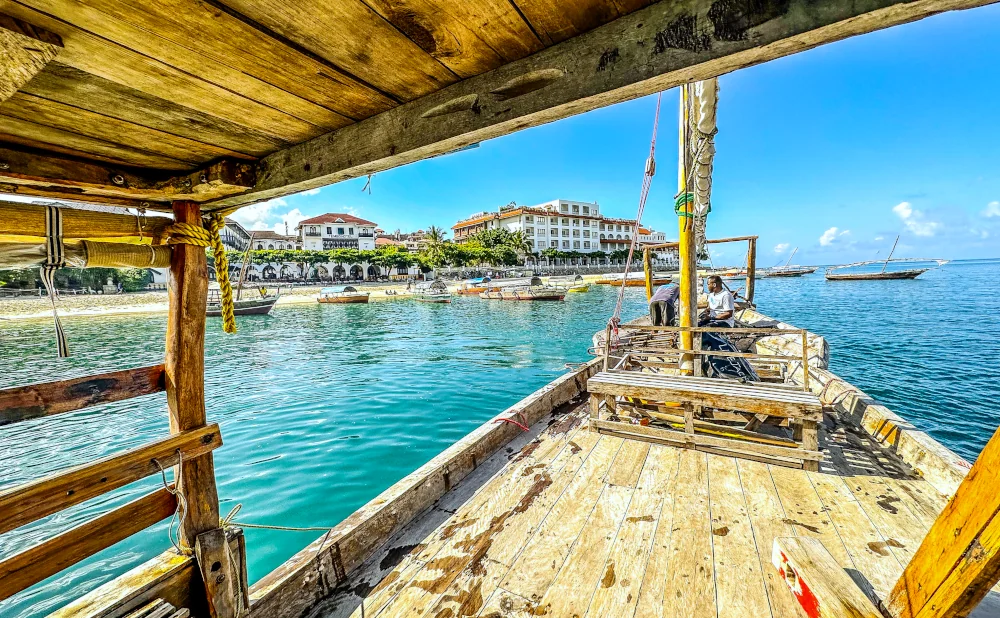Exploring the Rich History of Kilwa
Kilwa, an archipelago off the coast of Tanzania, boasts a rich history that dates back over a thousand years. Its strategic location along the Indian Ocean trade routes made it a thriving center of commerce and culture during the medieval period. In this article, we'll explore the captivating history of Kilwa, shedding light on its historical significance, cultural heritage, and the remnants that continue to draw visitors to this day.
The Beginnings of Kilwa
Kilwa's story begins in the 9th century when it was established as a small trading post. The island's favorable position attracted settlers from the Arabian Peninsula, Persia, and India, who were drawn by the lucrative trade in gold, ivory, and slaves. Over time, Kilwa developed into a bustling city-state, renowned for its wealth and influence in the region.
The Rise of Kilwa Sultanate
During the 12th century, Kilwa reached the zenith of its power under the rule of the Kilwa Sultanate. This period marked the island's transformation into a prominent center of Swahili culture and commerce. The sultans of Kilwa established a sophisticated system of governance and trade networks that extended across the East African coast and into the hinterlands.
The construction of grand stone structures, including palaces, mosques, and trading complexes, symbolized the prosperity of Kilwa during this era. Notably, the Great Mosque of Kilwa, one of the oldest standing mosques in East Africa, stands as a testament to the architectural prowess of the time.
Kilwa and the Indian Ocean Trade
Kilwa's strategic location along the Indian Ocean trade routes facilitated its growth as a hub for maritime commerce. Merchants from as far as China, India, and the Middle East docked at Kilwa's ports to exchange goods, ideas, and culture. The trade of gold from the interior of Africa, along with ivory and slaves, enriched Kilwa and contributed to its prominence.
The Influence of Kilwa on Swahili Culture
Kilwa's historical significance extends beyond trade and commerce. The island played a pivotal role in the development of Swahili culture, a unique blend of African, Arab, and Persian influences. The Swahili language, a Bantu language infused with Arabic and Persian words, became the lingua franca of the East African coast.
Architectural Marvels of Kilwa
The remnants of Kilwa's architectural marvels offer a glimpse into its past grandeur. The Husuni Kubwa, a vast palace complex constructed in the 14th century, showcases the island's architectural sophistication. The structure's intricate stone carvings and coral walls reflect the fusion of diverse cultural influences that characterized Kilwa's society.
The Decline of Kilwa
Kilwa's fortunes began to wane in the 16th century due to a combination of factors, including internal strife, Portuguese incursions, and the shifting dynamics of global trade. The arrival of the Portuguese marked a turning point, as they sought to control the lucrative trade routes of the Indian Ocean. The subsequent Portuguese occupation disrupted Kilwa's trade networks and led to the decline of its economic power.
Kilwa Today: A UNESCO World Heritage Site
Despite its decline, Kilwa remains a site of historical and cultural importance. In 1981, Kilwa Kisiwani, along with the nearby Songo Mnara, was designated a UNESCO World Heritage Site. This recognition underscores the significance of Kilwa's architectural heritage and its role in the history of the Swahili coast.
Visiting Kilwa
For travelers interested in history and culture, Kilwa offers a unique opportunity to explore the remnants of its illustrious past. Guided tours of the ruins provide insight into the island's storied history, while the serene coastal landscapes offer a tranquil escape from the hustle and bustle of modern life.
Efforts in Preservation
Efforts to preserve Kilwa's historical sites are ongoing, with initiatives aimed at safeguarding the architectural and cultural heritage of the island. Restoration projects and community engagement play a vital role in ensuring that future generations can continue to appreciate the rich history of Kilwa.
Kilwa's history is a testament to the region's vibrant cultural exchange and economic prosperity during the medieval period. From its rise as a powerful sultanate to its enduring legacy as a UNESCO World Heritage Site, Kilwa remains an important chapter in the history of Tanzania and the wider Swahili coast. As we continue to uncover and preserve its past, Kilwa serves as a reminder of the interconnectedness of cultures and the enduring impact of historical trade networks.
Whether you're a history enthusiast or a traveler seeking to experience the remnants of a bygone era, Kilwa offers a captivating journey into the past that is both educational and inspiring.











